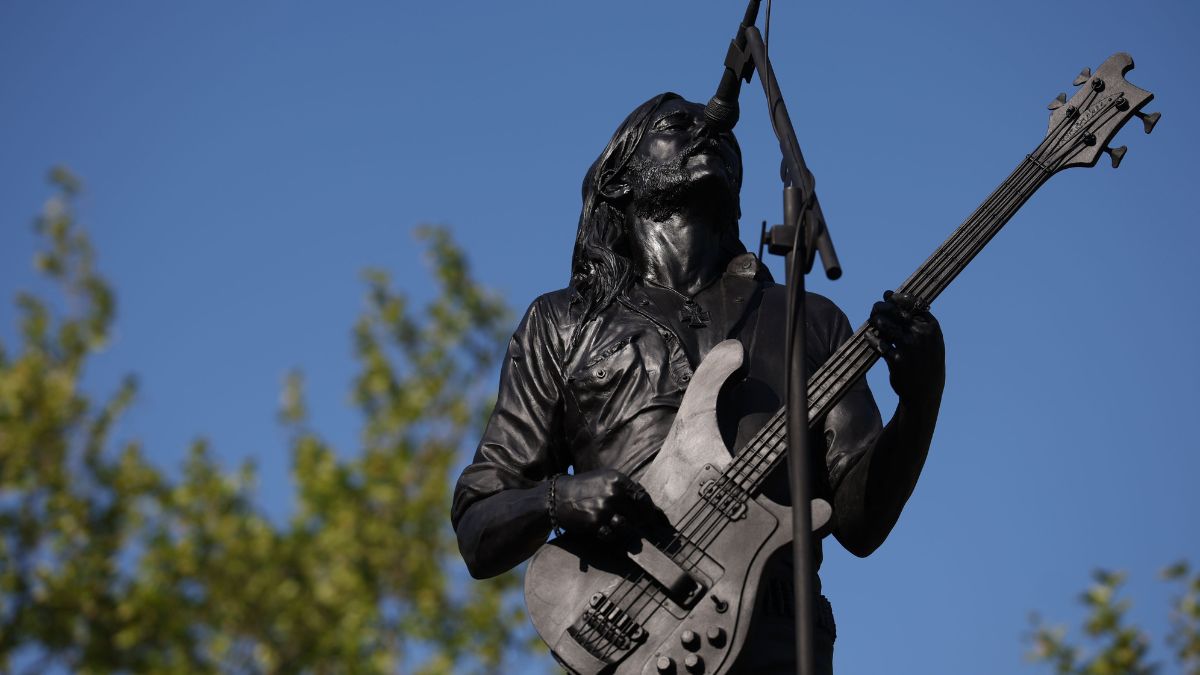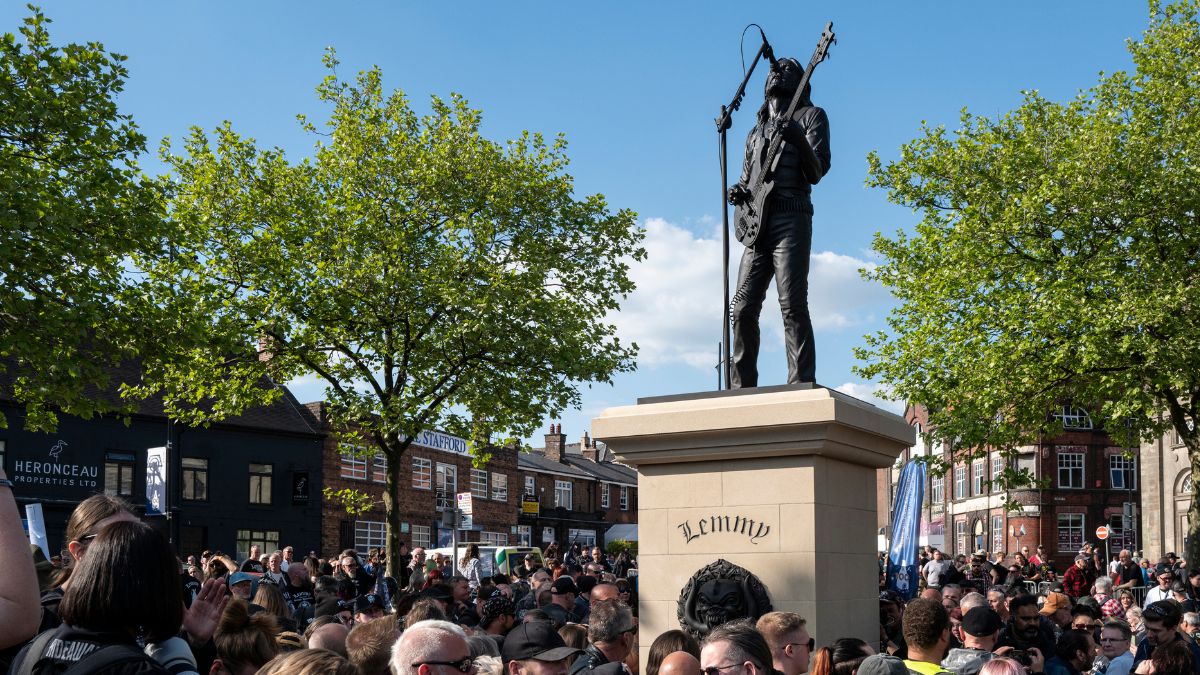“An avatar of the purest spirit of rock and roll”: Lemmy honored with a towering bronze statue unveiled in the Motörhead legend’s hometown
The statue – which depicts Lemmy wielding his iconic Rickenbacker – contains some of his ashes, and arrives 50 years after the formation of Motörhead

All the latest guitar news, interviews, lessons, reviews, deals and more, direct to your inbox!
You are now subscribed
Your newsletter sign-up was successful
The late Motörhead legend Lemmy Kilmister has been immortalized with a statue in his hometown of Burslem, Stoke-on-Trent, England.
The unveiling of the 2.25m bronze-cast statue – which depicts Lemmy wielding his iconic Rickenbacker bass guitar – was preceded by a procession of motorbikes with hundreds in attendance.
The unveiling comes 10 years after Lemmy's death and 50 years after Motörhead’s formation. The statue, which sits on a large plinth in the town’s Market Place, has been created by local sculptor Andy Edwards with one fan telling the BBC that “it looks alive”. Edwards is also responsible for a life-size Beatles sculpture in Liverpool some 60 miles up the road.
It’s been designed to depict Lemmy in the 1980s, when Motörhead were at theit peak. He’s been sculpted with his iconic Rickenbacker and a downwards-titled microphone, a stance he unwaveringly held night after night over the band's tireless history.
Long-serving Motörhead guitarist Phil Campbell was among those in attendance at the event, and has hailed the statue as “brilliant”.
Notably, it contains some of Lemmy’s ashes, some of which were also sent to a number of the late bass player’s friends. James Hetfield was among that inner circle, who turned the bullet-encased ashes into a tattoo on his middle finger.

“Of all the figures in music, there aren't that many that have the unique stature that Lemmy does,” Edwards tells the BBC. “He's like an avatar of the purest spirit of rock and roll – he's one of us.”
All the latest guitar news, interviews, lessons, reviews, deals and more, direct to your inbox!
Lemmy had started his playing days on electric guitar, though he later pivoted to four strings – and keenly avoided negative bassist stereotypes.
“Most bass players are boring, standing at the back,” he had once said. “I’m not like that because I was a guitarist first”
The band has historically stood out as one of rock’s loudest and his unrelenting distorted bass tone was crucial to that sound. It’s a tone, his tech says, that’s not easy to nail.
Former guitarist Eddie Clarke, who featured on Motörhead's career-defining LP Ace of Spades, said the lack of low-end in Lemmy's sound proved difficult to handle at first, with the record's producer, Vic Maile, serving as a key player in helping the band master a sound that has inspired generations of rock players since.
Over in Belfast, plans for a Gary Moore statue are generating traction. Belfast Green Party councilor Brian Smyth has led the charge, believing the city's greatest guitarist “deserves” the honor.
It follows the recent unveiling of a Rory Gallagher statue in Ireland, which appeared to get one key detail wrong.
A freelance writer with a penchant for music that gets weird, Phil is a regular contributor to Prog, Guitar World, and Total Guitar magazines and is especially keen on shining a light on unknown artists. Outside of the journalism realm, you can find him writing angular riffs in progressive metal band, Prognosis, in which he slings an 8-string Strandberg Boden Original, churning that low string through a variety of tunings. He's also a published author and is currently penning his debut novel which chucks fantasy, mythology and humanity into a great big melting pot.
You must confirm your public display name before commenting
Please logout and then login again, you will then be prompted to enter your display name.

